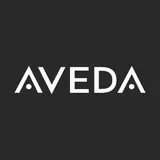
Schwarzkopf
Learn more about our scoring →
About Schwarzkopf
Schwarzkopf represents over a century of German haircare innovation, operating as a flagship brand within Henkel's consumer portfolio. The brand maintains significant market presence across professional and retail channels, offering comprehensive hair color, styling, and care solutions that reflect both heritage craftsmanship and contemporary formulation science.
Sustainability performance reveals a complex landscape where parent company Henkel's robust environmental commitments create strong climate action and packaging innovation, while fundamental ethical standards around animal welfare present significant challenges. The brand's positioning within Henkel's broader sustainability framework enables ambitious carbon reduction targets and supply chain transparency, yet contradicts growing consumer expectations for cruelty-free beauty standards.
Operating within the competitive haircare market, Schwarzkopf benefits from Henkel's corporate sustainability infrastructure, including science-based climate targets and social impact programs, while navigating industry-wide tensions between regulatory compliance and ethical positioning in global markets where animal testing requirements persist.
The Good Stuff
Where Schwarzkopf appears to be making meaningful progress. We cross-referenced these findings with multiple independent sources.
Science-Based Climate Commitments
SBTi-validated net-zero targets covering all emission scopes by 2045, with climate-positive production goals and renewable energy integration at manufacturing facilities
Packaging Innovation Leadership
Ambitious virgin plastic reduction targets with significant reduction goals and 89% recyclable package design, supporting closed-loop plastic initiatives
Global Social Impact Programs
Comprehensive workforce development through living wage assessments, gender-neutral parental leave, and Shaping Futures vocational training for disadvantaged youth
The Reality Check
Areas where the publicly available data gets murky, incomplete, or concerning. We're transparent about the limitations of our analysis.
Animal Testing Compliance
Permits animal testing for regulatory compliance in certain markets, preventing cruelty-free certification and contradicting ethical beauty standards
Biodiversity Protection Void
Absence of habitat restoration programs, wildlife conservation partnerships, or ecosystem protection initiatives in corporate sustainability strategy
Inconsistent Vegan Standards
Select products labeled as vegan without comprehensive brand-wide vegan certification, creating potential consumer confusion about ethical positioning
Schwarzkopf's
Impact Aura
A visual representation of Schwarzkopf's positive impact
across People, Planet and Animals
Each colored area represents the brand's performance in that sustainability category. The size and intensity of each blob corresponds to their score—larger, more vibrant areas indicate stronger performance.
Our Research
Key findings from our comprehensive analysis of Schwarzkopf's sustainability performance across People, Planet & Animals impact.
Positive Impact on People
Research Highlights
- Henkel's parent company sustainability leadership demonstrates SBTi-validated net-zero targets and comprehensive social programs
- Living wage assessments implemented worldwide with gender-neutral parental leave policies since 2024
- Supply chain transparency includes approximately 3,200 suppliers assessed through emissions data collection and audits
- Schwarzkopf Professional's Shaping Futures initiative provides vocational training for socially disadvantaged youth globally
- Product safety commitments include risk analyses and safety protocols, though specific verification standards remain unclear
Evidence Strength
Strong documentation for labor practices and supply chain engagement, moderate evidence for ingredient safety protocols
Positive Impact on Planet
Research Highlights
- Climate-positive production targets by 2030 with solar and biogas implementation at key manufacturing sites
- SBTi-validated net-zero commitments covering scope 1-3 emissions by 2045 demonstrate rigorous climate planning
- Packaging innovation shows 50% virgin plastic reduction goals and 89% recyclable package design achievement
- Water stewardship demonstrates 23% reduction in water withdrawal per ton of product since 2010
- Biodiversity and habitat restoration initiatives show significant gaps in corporate environmental strategy
Evidence Strength
Excellent documentation for climate action and packaging innovation, limited evidence for biodiversity protection and chemical management
Positive Impact on Animals
Research Highlights
- Animal testing permitted for regulatory compliance in certain markets, preventing cruelty-free certification
- Select Professional products labeled as vegan, though brand-wide vegan standards remain inconsistent
- Palm kernel oil traceability demonstrates 94% mill-level and 65% plantation-level verification
- Wildlife conservation and habitat restoration programs show absence of dedicated funding or partnerships
- Conservation support initiatives lack evidence of ecosystem protection or restoration commitments
Evidence Strength
Comprehensive verification of animal testing policies and vegan product limitations, clear documentation of conservation gaps
See the Receipts
We don't just make claims—here are the official certifications that prove Schwarzkopf's sustainability commitments.
Frequently Asked Questions
Is Schwarzkopf sustainable?
Schwarzkopf demonstrates strong environmental performance through parent company Henkel's science-based climate targets and packaging innovation, achieving significant reductions in carbon emissions and plastic waste. However, sustainability assessment reveals critical gaps in animal welfare standards and biodiversity protection that limit overall ethical positioning.
Is Schwarzkopf cruelty-free?
Schwarzkopf is not cruelty-free, as the brand permits animal testing for regulatory compliance in markets where required. This policy prevents certification by recognized cruelty-free organizations and contradicts growing consumer demand for ethical beauty standards.
Does Schwarzkopf offer vegan products?
Select Schwarzkopf Professional products carry vegan labeling, though the brand lacks comprehensive vegan certification across all product lines. The presence of animal testing policies further complicates vegan positioning, as many consumers expect cruelty-free practices alongside vegan formulations.
What environmental certifications does Schwarzkopf have?
Schwarzkopf benefits from parent company Henkel's SBTi-validated climate targets and sustainability framework, though the brand itself lacks major environmental certifications. The company's packaging innovation and climate commitments reflect corporate sustainability leadership without third-party verification at the brand level.
How does Schwarzkopf compare to other haircare brands on sustainability?
Schwarzkopf shows strong performance in climate action and packaging innovation through Henkel's corporate sustainability infrastructure, yet lags behind cruelty-free competitors in animal welfare standards. The brand's sustainability profile reflects mixed leadership across environmental and ethical dimensions.
What is Schwarzkopf doing about climate change?
Schwarzkopf participates in Henkel's comprehensive climate strategy, including SBTi-validated net-zero targets by 2045 and climate-positive production goals by 2030. The brand benefits from renewable energy integration at manufacturing facilities and scope 1-3 emissions reduction commitments.
Does Schwarzkopf use sustainable packaging?
Schwarzkopf demonstrates packaging innovation leadership with significant virgin plastic reduction targets and 89% recyclable package design achievement. The brand supports closed-loop plastic initiatives and has achieved notable recycled plastic content integration in packaging, reflecting strong circular economy commitments.
Ready to Shop Schwarzkopf?
Find Schwarzkopf products through our trusted retail partners
The Bottom Line
Schwarzkopf presents a sustainability paradox: exceptional climate action and packaging innovation through Henkel's corporate framework, undermined by fundamental animal welfare limitations that prevent cruelty-free certification. The brand's environmental leadership creates significant value for climate-conscious consumers, while ethical positioning challenges limit appeal for those prioritizing animal welfare standards.


